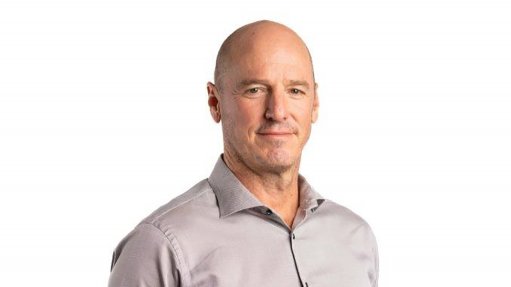IDC outlines actions for mining industry to inch closer to success
JOHANNESBURG (miningweekly.com) – While the Toronto Declaration-based standards for the mining industry, adopted by the International Council of Metals and Mining, are broadly accepted as encompassing mines’ social licence to operate, only an “arrogant or stupid person” would argue that all relevant standards have been met, says Industrial Development Corporation (IDC) director Bobby Godsell.
Speaking at the Science Business Society Dialogue Conference on Linking Science, Society, Business and Policy for the Sustainable Use of Abandoned Mines in the Southern African Development Community Region, in Johannesburg, on Tuesday, Godsell highlighted how mining can and should be a benefit to investors, workers, local communities and host nations.
Godsell suggested ways that the local mining industry can act to get closer to being successful and an important pillar of a prosperous and good society.
In terms of the standards contained in the Toronto Declaration, Godsell reiterated that mining should reward investors with fair and sustainable returns for their investment. However, mining should also be a good steward of the physical environment in which it operates and should offer employees a workplace that protects the safety and the dignity of the employee. It should also produce real benefits for the communities in which it operates during and after the mining process.
Godsell reflected on how the mining industry should relate to the society it serves and, considering where it failed, how it could better implement the standards of the Toronto Declaration.
He added that the advances made in mining technologies and metallurgical recovery technologies, as well as in the environmental sciences, should enable mining to be a good steward of its physical resources. Further, there was no reason why mines could not mine in an environmentally sustainable way.
Godsell noted, however, that problems occurred where regulations were poorly framed and poorly enforced.
“Where a responsible relationship between mining and the environment does not occur during the life-of-mine (LoM), environmental damage can often outlive the economic life of a mining company,” he said.
Godsell suggested that good law and management should largely prevent this, as the impact on the environment should be built on the legal licence to mine and operate.
In terms of the mine and its employees, Godsell highlighted that, though the use of high-energy technologies and often confined workspace pose particular health and safety challenges in the twenty-first century, there is no reason why workers should not complete shifts safely.
However, he added that it was more and more the case that safety was key to most mining companies’ objectives, often being the first aspect of operational performance that is reported.
Further, as mines extract value from minerals, communities often see this value as a “national patrimony”. However, expectations on the part of communities for this patrimony are often poorly articulated and not nearly emphatically negotiated.
“We sorely miss those kinds of structures when we talk about a relationship between a mine and its communities,” Godsell acknowledged.
While communities often have unrealistic expectations of the mining company or look to the mine for “a better life for all”, mining companies, in turn, while not being able to meet all the expectations, can meet some expectations.
Godsell suggested that what seems to have been particularly absent with regard to mines and communities, are three-way partnerships between mines, communities and government at all levels and, in particular, the relationship between local and regional government, mines and communities.
In addition to the promotion of these partnerships, Godsell suggested that the partnerships should include fiscal sharing, where at least part of the taxes paid by mines are spent in the communities in which the mines operate.
“Isn’t it a tragedy that we have no clear and fair fiscal sharing revenue,; [meaning] that the money the mines generate goes to overpaid civil servants in national capitals and doesn’t build roads and hospitals in the areas where mines exists?” he lamented.
Godsell further suggested that, where successful partnerships are created between government, communities and mines, the infrastructure required by mines could often be extended and shared.
He highlighted the Geita mine in Tanzania as a good example.
In terms of mining and investors, in relation to the discussions at hand, Godsell emphasised the need for investors, quipping that, in the context of time and realising the goal of good mine community relations, investment comes first.
“You need money to find and build a mine . . . a deep-level gold mine shaft would cost nothing less than a billion dollars to build and you would probably not access the first revenue in a . . . period of less than ten years,” he said.
Godsell noted the challenge of finding the investor in today’s fund manager-driven capitalist market, and investing large amounts of money to “push mining to new frontiers”, such as mining below 4 000 m in South Africa.
He therefore emphasised the need for a robust relationship between mines and government and communities.
Godsell further expressed the need for mines to commit to a goal of fiscal morality and to pay their “fair share” of taxes and profits over the LoM. He added that governments must avoid the corrupt seizing of rent and the corrupt use of mine taxes.
Godsell also suggested that industry regulations needed to be “clear and certain, fit for purpose and transparent, in development and in their enforcement”.
Consequently, he noted that some of the mining agenda should be to ensure that the vision of the Toronto Declaration is fulfilled.
Comments
Press Office
Announcements
What's On
Subscribe to improve your user experience...
Option 1 (equivalent of R125 a month):
Receive a weekly copy of Creamer Media's Engineering News & Mining Weekly magazine
(print copy for those in South Africa and e-magazine for those outside of South Africa)
Receive daily email newsletters
Access to full search results
Access archive of magazine back copies
Access to Projects in Progress
Access to ONE Research Report of your choice in PDF format
Option 2 (equivalent of R375 a month):
All benefits from Option 1
PLUS
Access to Creamer Media's Research Channel Africa for ALL Research Reports, in PDF format, on various industrial and mining sectors
including Electricity; Water; Energy Transition; Hydrogen; Roads, Rail and Ports; Coal; Gold; Platinum; Battery Metals; etc.
Already a subscriber?
Forgotten your password?
Receive weekly copy of Creamer Media's Engineering News & Mining Weekly magazine (print copy for those in South Africa and e-magazine for those outside of South Africa)
➕
Recieve daily email newsletters
➕
Access to full search results
➕
Access archive of magazine back copies
➕
Access to Projects in Progress
➕
Access to ONE Research Report of your choice in PDF format
RESEARCH CHANNEL AFRICA
R4500 (equivalent of R375 a month)
SUBSCRIBEAll benefits from Option 1
➕
Access to Creamer Media's Research Channel Africa for ALL Research Reports on various industrial and mining sectors, in PDF format, including on:
Electricity
➕
Water
➕
Energy Transition
➕
Hydrogen
➕
Roads, Rail and Ports
➕
Coal
➕
Gold
➕
Platinum
➕
Battery Metals
➕
etc.
Receive all benefits from Option 1 or Option 2 delivered to numerous people at your company
➕
Multiple User names and Passwords for simultaneous log-ins
➕
Intranet integration access to all in your organisation


















